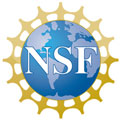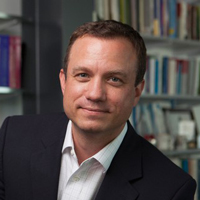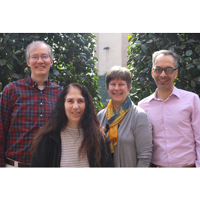NSF International Research Experiences for Students (IRES) Program Now Accepting Applications

By Thyagarajan Nandagopal, NSF
The NSF International Research Experiences for Students (IRES) program is now accepting applications – this is a program where CISE communities have not leveraged very well in the past, having only 7 of the 158 active IRES awards. The program supports international research and research-related activities for U.S. science and engineering students. If you have (or are considering reaching out to) international research partners who would be willing to host and train undergraduate and graduate students in research, this is a fantastic opportunity to advance science through such collaborations. See list of active IRES awards to explore the rich set of topics that has been supported thus far, and to help identify appropriate IRES collaborations – communicate this information to your students as well.
International Research Experiences for Students (IRES)
https://www.nsf.gov/pubs/2019/nsf19585/nsf19585.htm
All PIs, co-PIs and Senior Personnel on IRES proposals must be from U.S. based institutions. Student participants supported by IRES funds must be citizens, nationals, or permanent residents of the United States. Students do not apply directly to NSF to participate in IRES activities. Students apply to NSF-funded investigators who receive IRES awards.
- IRES – Track I: IRES Sites (IS) projects engage a group of undergraduate and/or graduate students in active high-quality collaborative research at an international site with mentorship from researchers at a host lab. IRES Sites must be organized around a coherent intellectual theme that may involve a single discipline or multiple disciplines funded by NSF.
- IRES – Track II: Advanced Studies Institutes (ASI) are intensive short courses with related activities that engage advanced graduate students in active learning and research at the frontiers of knowledge. ASIs typically range in length from ten to twenty-one days and must be held outside the United States. ASIs must have a compelling rationale for their international location and should involve distinguished active researchers in the target field from the U.S. and abroad. ASIs should enable students to develop skills and broaden professional networks, leveraging international participation and complementary resources (expertise, facilities, data, field site, etc.) for mutual benefit.
- IRES – Track III: New Concepts in International Graduate Experience (IGE) The IGE IRES track invites teams of PIs to propose, implement, evaluate and disseminate innovative large-scale programs (models) for providing high-quality international research and research-related professional development experiences to U.S. graduate students. The PIs should explain how their innovative program (model) could potentially be adaptable beyond the immediate disciplinary fields involved in their proposal. The proposals should be designed from the viewpoint of graduate-level STEM research/training, and globally engaged STEM workforce development. The proposals should be grounded in relevant literature on graduate STEM research/training, education, and graduate level international experiences.
U.S. graduate students recruited from a broad, diverse applicant pool should travel to non-U.S. locations for periods of several weeks to a semester for immersive experiences under the mentorship of appropriate collaborators. The proposed international graduate research experience model may focus on research and research-related activities in any NSF-funded area(s). Proposals that utilize, leverage and expand existing global networks and infrastructure are strongly encouraged.



